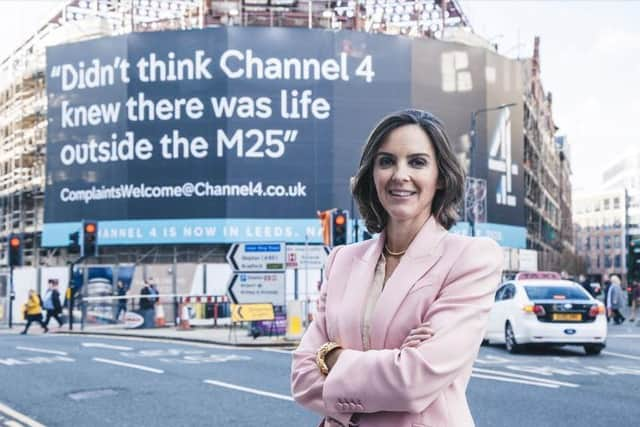How new guidance could restart Yorkshire and UK's 'calling card' screen industry
But the industry behind it, part of what a Government minister described as "Britain's global calling card", shut overnight amid the coronavirus pandemic.
Now the UK's major broadcasters and leading organisations have joined together to release guidance to start the tentative process of getting camera crews working again.
Advertisement
Hide AdAdvertisement
Hide AdChannel 4, ITV, BBC, Sky, Channel 5, STV, ITN, the Association for Commercial Broadcasters and On-Demand Services (COBA) and Pact introduced new industry-wide guidelines for producing television safely in the weeks and months ahead, which are intended to enable a return to production for the television industry.


Culture Secretary Oliver Dowden said: "Great British television is keeping us company throughout the crisis, and I'm keen to get cameras rolling as soon as it is safe.
"Our creative industries are Britain's global calling card and this is a significant step forward in getting our favourite shows back into production."
The number one priority in the new guideline is the safety and well-being of production teams and those who work with them, say its authors.
Advertisement
Hide AdAdvertisement
Hide AdIt has been produced through a collaboration of cross industry experts in this area along with external expertise provided by Dr Paul Litchfield CBE.
The broadcasters have also worked with First Option, safety consultants to the media and entertainment industry, to devise this approach as well as liaising with union representatives and the Health and Safety Executive.
Guidance may change, however, "as government advice evolves and as TV productions adapt to the new challenges posed by the Covid-19 risk and provide a framework the entire industry can work within".
The guidance details six areas that producers, in conjunction with a commissioning broadcaster, must consider when planning to produce during Covid-19:
- Specifically consider people at higher risk of harm
- Heighten precautions for everyone at work
- Reduce the number of people involved
- Consider editorial ‘on camera’ requirements
- Consider mental health and wellbeing
- Feedback
Advertisement
Hide AdAdvertisement
Hide AdIn addition, the guidance lays out other the key areas to consider when assessing risk on productions and suggests controls to consider.
These include minimising travel and considering the physical capacity of locations.
However, the organisations say the "use of PPE is very much a last resort and should only be considered when all other forms of control have been considered and/or implemented".
Channel 4 has previously stated the impact of lost advertising revenues on its output and said there will likely be delays to the continued set-up of new Leeds operations.
Advertisement
Hide AdAdvertisement
Hide AdAlex Mahon, the broadcaster's chief executive, said: “I’m phenomenally proud of the role Channel 4, alongside our production partners, has played over the last two months to help navigate audiences, particularly young and hard-to-reach viewers, through the Covid crisis.
"Unlocking the television production sector in a safe way will be vital to continuing to ensure we can both continue to serve our audiences and help sustain the livelihoods of those in the industry – and I’m pleased that we’ve been able to work in partnership with other broadcasters, DCMS and PACT to create this innovative new framework.”